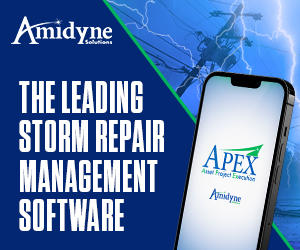EPRI releases first-of-its-kind grid planning resource to identify when, where, and how much load electric vehicles will represent across the entire U.S. electrical grid as the utility industry prepares to meet the needs of the coming wave of transportation electrification.
As part of its EVs2Scale2030 initiative, EPRI - with support from truck and car manufacturers, fleet operators, the U.S. Department of Energy (DOE), the DOE National Labs, RMI, and others - released today (Nov 28) eRoadMAP , an interactive online resource intended to help electric power companies and industry stakeholders effectively plan for the power and infrastructure needed to serve light-, medium-, and heavy-duty electric vehicles (EVs).
This free and public tool allows users to explore how quickly EVs are expected in different regions, and identifies energy needs across the U.S. at the individual feeder level where critical utility planning occurs. To highlight both near-term and future energy needs, eRoadMAP incorporates the electrification plans of critical industry stakeholders as well as the future energy needs to support full electrification of the on-road transportation sector. This tool is a work in progress and will continue to be updated and improved with additional data. Future plans for the mapping tool include integrating important demographic data and other planning resources to help identify and prioritize areas where transportation electrification-related investments can be made to address specific market needs, including major freight hubs, corridors and disadvantaged communities.
"If you can't measure it, you can't manage it," said EPRI Director of Transportation Britta Gross.
"If you can't measure it, you can't manage it," said EPRI Director of Transportation Britta Gross. "Despite the critical need, there has not been a single, comprehensive database to help with grid planning and cross-industry decision-making for electrified transportation. eRoadMAP will connect the dots for industry and government to work in collaboration to meet current and future EV infrastructure needs," she added.
"As we work to decarbonize the transportation sector, visualizing the year-over-year anticipated grid loads using eRoadMAP will be critical to important planning conversations that enable the timely buildout of charging and grid infrastructure," said Michael Berube, DOE's deputy assistant secretary for sustainable transportation and fuels. "We look forward to continued work with EPRI, leveraging DOE and the national labs' longstanding expertise in modeling the energy needs for electric vehicles, to increase coverage of ground transportation sources and continually improve this valuable tool's projection accuracy."
"Today, one in seven of all EVs in the nation are in PG&E's service area. We are committed to further accelerating transportation electrification to promote healthy communities and lower energy costs for our customers' families and businesses. To unleash the full potential of EVs, we must proactively plan for a resilient grid to accommodate new demand from EVs. eRoadMAP will give us insight into our customers' long-term plans, which we can utilize to better prepare our grid for future electrification demand," said Mike Delaney, PG&E VP of utility partnerships and innovation.
"The availability of reliable electric charging infrastructure remains a critical bottleneck affecting the pace of commercial electric vehicle adoption and current infrastructure construction timelines are measured in years, not weeks or months. We applaud EPRI's leadership in releasing the first iteration of eRoadMAP through the EVs2Scale2030 initiative, which can inform critical planning and proactive investment decisions to expedite infrastructure construction. At the same time, eRoadMAP can also contribute to shaping future policy efforts and regulatory rulemaking," said Rakesh Aneja, Daimler Truck North America Vice President and Head, zero-emissions transformation group.
To learn more about eRoadMAP, visit https://eroadmap.epri.com/.
Contact:
Samantha Gilman
Communications Manager
980-348-8783
sgilman@epri.com
About EVs2Scale2030
EVs2Scale2030 initiative is a three-year commitment focused on leveraging industry scale to galvanize and align critical market stakeholders as electric vehicles are deployed at scale to achieve 2030 electrification goals. EPRI will leverage its industry partnerships to mobilize utilities, fleet operators, the automotive industry, and charging providers, and coordinate with federal agencies and labs, to support the rapid deployment of millions of electric vehicles - while minimizing grid impacts and enabling critical benefits to the nation's grid. To learn more visit: EVs2Scale2030.
About EPRI
Founded in 1972, EPRI is the world's preeminent independent, non-profit energy research and development organization, with offices around the world. EPRI's trusted experts collaborate with more than 450 companies in 45 countries, driving innovation to ensure the public has clean, safe, reliable, affordable, and equitable access to electricity across the globe. Together, we are shaping the future of energy.










